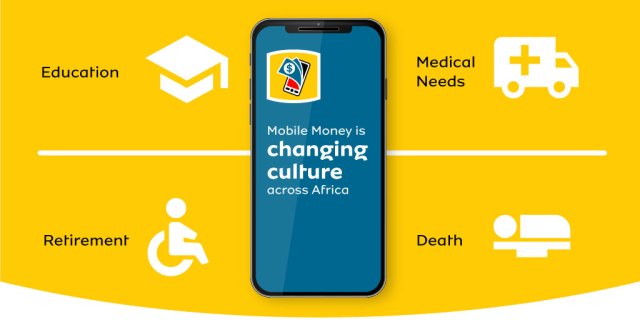
- Home
- About Us
- Sustainability
- Investors
- News
- People & Culture
-
Regions
When we travel unknown roads, a GPS app guides the way. When we are swamped at work, a virtual PA can turn a chaotic day into an organized one. When people who previously had no access to traditional banking can use a phone make financial transactions, financial planning becomes a reality. The rise of mobile money presents numerous opportunities for people in Africa, including the opportunity to save and plan for the future. Today, 6 million MTN Mobile Money users have opted in to make the best of this opportunity to save, in several important ways.
6 million MTN Mobile Money users have opted in to make the best of this opportunity to save.
Free education is not yet available throughout the continent, so many African parents are required to contribute to the cost of basic and secondary education. Tertiary education is often not a reality for those who complete high school. The Africa Report cites an alarming UNESCO statistic; 60% of children between the ages of 15 and 17 do not go to school. Mobile money enables parents to save for the education of their children, and to pay school fees every month in a safe and easy manner.
Nobody plans to fall ill or become injured, but such incidents happen every day. These incidents become infinitely more stressful when medical bills pile up or access to treatment isn’t possible without the immediate availability of funds. Access to mobile money opens up a world of financial solutions for people in Africa, including hospital insurance. The ability to get medical cover through a mobile phone is just one example of how financial inclusion is becoming a reality for Africans.
Technology has led to a number of medical breakthroughs. So many illnesses that used to cause death are now treatable, and more people are living to the age of 100 than ever before. In South Africa, most people cannot afford to retire or live solely on retirement income without an additional income. Regular saving through mobile money makes it more realistic for people in Africa to plan for retirement and less likely to rely on family members to get by.

Princeton University, the Harvard School of Public Health, the University of Cape Town and the University of Chicago collaborated on a paper titled The Economic Consequences of Death in South Africa. The paper discusses how the death of an individual in an African household can have a major impact on those who are left behind. A death in a family can be the difference between food on the table and poverty, if that person is the sole breadwinner in the house. Mobile money offers users access to mobile life cover, so the financial head of a household can save funds to help the family in the event of his or her death. Funeral policies can also be taken out, so that the cost of saying goodbye doesn’t add to the heartbreak of losing a loved one.
A simple app, on a pocket-sized phone, can make a major difference to a lot of people. Not only does mobile money give African people an entry to the global economy, it gives African people the opportunity to plan for the future.